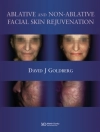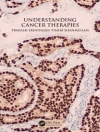Patients with pain emanating from their spines represent some of the most frequent and challenging cases for physical therapists. Here is a comprehensive and practical introduction to the management of back pain and restricted spinal function caused by intervertebral disk damage. The authors provide evidence-based, clinically oriented strategies for the diagnosis and therapeutic treatment of disk injury in the lumbar, thoracic, and cervical spinal regions. The text gives an overview of research studies on the effects of physical therapy on back pain, step-by-step guidance on examination and conservative and postoperative physical therapy procedures, and detailed discussion of rehabilitation and prevention of further disk damage.
Key Features:
- Extensive coverage of examination, from patient history to tests for assessing spinal movement to nerve conduction
- Precise instructions and useful pointers on treatment methods aid in daily practice
- Chapter on basic principles of anatomy, physiology, and epidemiology offer foundational knowledge
- Crucial information on approaches for rehabilitation and injury prevention, including strengthening, coordination exercises, and conditioning
- Case studies present clinical examples that guide the reader through the full course of therapy
- 70 clear line drawings illustrate how to maintain correct posture; avoid poor posture; and protect and train muscles, nerves, and joints
Physical Therapy for Intervertebral Disk Disease is a complete guide to the diagnosis and physiotherapeutic treatment of problems resulting from intervertebral disk damage. Practitioners and students of physical therapy, rehabilitation medicine, and occupational therapy will read this book cover to cover and refer to it regularly when working to relieve back pain and restore full capacity in their patients.
विषयसूची
Chapter 1: Introduction
Chapter 2: General Principles
Chapter 3: Medical Diagnosis and Treatment
Chapter 4: Diagnosis in Physical Therapy
Chapter 5: Therapy
Chapter 6: Lumbar Spine
Chapter 7: Thoracic Spine
Chapter 8: Cervical Spine
Chapter 9: Rehabilitation and Prevention
Chapter 10: Diseases Occurring in Association With Prolapsed Disks
Chapter 11: Psychosocial Risk Factors
Chapter 12: Selected Studies on the Topic of Spinal Disorders
Chapter 13: Significance, Types, and Objectives of Clinical Studies












